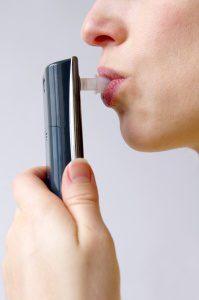- 24/7 - Free Consultation: (202) 529-9374
Driving under the influence (DUI) charges in the District of Columbia may seem confusing. These frequently asked questions (FAQs) will provide information that will help clarify any confusion that may have regarding DUI charges in DC.
As far as determining probable cause for a DUI stop or arrest, the standard of proof is relatively low. An officer can cite any number of minor incidents or factors, such as driving too slow or fast, breaking too often, or weaving, as reasonable suspicion to stop a driver.
Once stopped, the officer need only say that they could smell alcohol on the driver or that the driver had bloodshot eyes or responded too slowly to questions and instructions to justify the use of Standard Field Sobriety Tests (SFST) or the use of a Breathalyzer test. Formal blood or urine chemical tests take place at the police station after a person has been arrested.
Due to the District’s “zero tolerance” laws, anyone whose ability to operate a vehicle is appreciably impaired by alcohol or drugs can be charged with a DUI offense. This is especially true of minors and those who hold commercial drivers’ licenses.

Yes, a police officer can ask a person who is stopped for drunk driving questions without first reading them their rights.
However, a person can and should respectfully refuse to answer any questions about where the person was earlier, if the person drank or how much they had to drink, and any other questions that are posed with the intention of getting information that can be used for the basis of a DUI arrest.
Miranda rights must be read to an individual once they are placed under arrest. That is when officers are legally required to explain to the person that anything they say from that point on can be used against them and that they have the right to speak with a lawyer.
When an officer is questioning a person during a routine traffic stop or a DUI investigation, they do not have to read them their Miranda rights. Any evidence gathered in those circumstances may be used against a person in court, even if the officers did not read the person their Miranda rights prior to questioning them.
Yes, as long as the police used a neutral policy established in advance. This means that there had to be a policy in place that determined when the officers would stop a car. This could mean that they would stop every third or fourth car.
Furthermore, the police cannot hold a person for an unreasonably long period of time. The stop must be brief and any wait must be related to determining whether the person has committed a DUI offense.
David Benowitz and his firm are the best strategic and compassionate teams you will work with. Mr. Benowitz and his team are diligent and proactive, which is further enhanced by David’s methodic and strategic approach to law. My case was a very complicated and emotionally charged case involving classified information, where I was facing three indictments, two carrying life sentences and one carrying 20 years. Mr. Benowitz utilized a network of lawyers coupled with his own strategy to navigate the case to success! I sincerely recommend David Benowitz quite literally with my life.
Mr. Benowitz is an incredibly knowledgeable and dedicated professional. His commitments to social justice and community outreach are exemplary. I wholeheartedly recommend him for any matter.
I found David to be very dedicated to fighting for your loved one’s rights. I also highly appreciated the fact that David kept us informed and empowered throughout the whole process.